“Cameroon Elected Into The World Heritage Committee”
- Par Brenda
- 28 Dec 2018 19:17
- 0 Likes
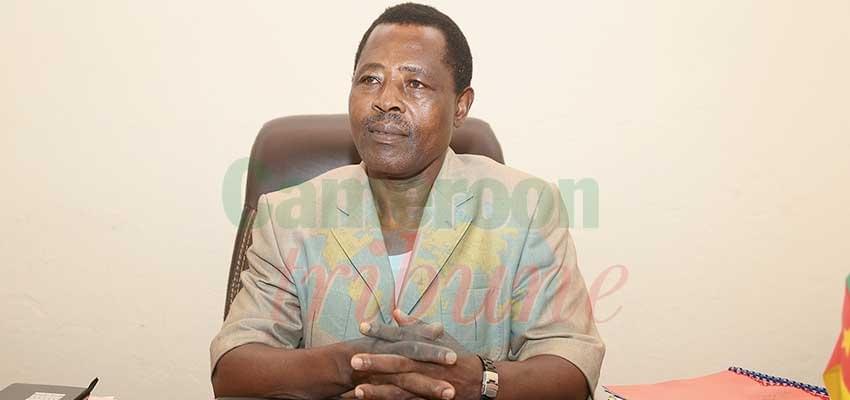
Prof. Raymond N. Asombang, Director National Museum, Yaounde.
What balance sheet can you make of the cultural activities in the country in 2018?
So much has happened in Cameroon culture wise during the year 2018, that I cannot possibly recount in detail here. Suffice it then to say that all the major cultural activities that were planned were successfully realised. If I must give some details, I will begin by saying that the year started with the cultural re-launch which the Ministry of Arts and Culture organised in Ngaoundere in February. In the course of the year, we also organised the 3rd edition of the Yaounde book fair known by its French acronym as SILYA (Salon International du Livre de Yaounde) in May and the 9th edition of the National Arts and Cultural Festival (FENAC) held in Bertoua from the 16th to the 22nd of July. In this same vein, I will like to mention festivals like the Ngondo and the Ngouon which just ended, and many more which are patronised on a yearly basis by the Ministry of Arts and Culture. The Minister of Arts and Culture, Professor Narcisse Mouelle Kombi, has made it a duty to always grace these festivals with his presence. It is important to add that the work we do in the culture sector is not limited to folklore.
The year 2018 saw the extension of the inventory of the national cultural heritage to the East and Adamawa Regions. There were training and reflection seminars and workshops concerning different aspects of culture such as the inscription of the Bimbia slave site and the dry stone structures of the Mandara Mountains (DGB) on the World Heritage List; the public and stake holders were sensitized on some UNESCO conventions, new museums were inaugurated, literary competitions were organized etc. You know that as a public sector institution, one of our mission is to provide services to the public. It is in this light that we can mention the many cultural events that we hosted in the gardens of the National Museum and the close to twenty-five thousand persons (nationals and expatriates alike) we received as visitors to the National Museum. Finally, we were also very present at the international scene where we took active part in meetings and conferences. The Minister or the Secretary General headed many of the delegations. One of the big successes of our cultural diplomacy in 2018 that I must mention was the election of Cameroon into the World Heritage Committee of the intangible heritage. The balance sheet was therefore very positive.
Of what impact is the National Arts and Cultural Festival to the cultural protection of the country?
The biennial festival, created in the late 1980s aimed to invigorate creativity and valorise artists. Only the best from each region in all aspects of culture are selected to showcase their talents at FENAC. So the desire to represent one’s region or division at FENAC spurs the artists to work very hard and in that way creativity is invigorated. FENAC is a forum where artists meet and exchange ideas with other artists, or are inspired by what others do. It is equally a spring board from which artists can link up with foreign partners. Finally, it is a festival where artists can sell their talents. The impact of FENAC on the protection and valorisation of our culture is immeasurable.
Author’s right is still a problem among copy right companies. Artists still carry out protests despite reforms. How can the author’s right problem be effectively handled?
I must say that I am myself at a loss as much as you are. It is really unfortunate that despite the efforts to organize this sector of our culture life, the problems still persist. I have the feeling that some artists feel that unless they are the ones in command, nothing can work. The trouble with some of us Cameroonians is that we are quick at criticizing others, forgetting that in their shoes, we cannot do as much, let alone better. I remember that one of the big criticisms of SOCINADA was that it did not have a free hand to manage authors’ rights. When late Minister Ferdinand Oyono created the four independent author’s right companies to replace the one (SOCINADA) that was existing before then, everybody thought that was ‘the solution’. But far from it; those dissenting voices have continued. Everybody is at a loss now as to what the artists want. This persistent disorder frustrates the efforts to collect royalties from those who exploit their works. So they the artists are the big losers. In answer to your question, there is no magic solution. I think the Ministry of Arts and Culture will continue to talk sense to those uncompromising artists and hope that someday, they will come to reason. The Ministry can certainly not give up.
During the year, there was the announced restitution of works of arts taken away during colonization. What do you have to say about such an announcement?
You are referring to the announcement made by French President Emmanuel Macron during a visit to Burkina Faso in March this year. I think all African countries including Cameroon, welcome this decision. I am really looking forward to seeing other colonial powers follow the French example. We are talking about the restitution of objects that were made and infused with power, so they are not inert objects. They are objects that are linked to the spirituality of African peoples. They were looted and taken away illegally, thereby depriving these peoples of the right to practice their religion. Their restitution will therefore be tantamount to repairing the wrong that was caused in the first place.
Does the country have an exact knowledge of its works of arts abroad?
I do not think so. This is because many of the objects were looted or stolen. Some custodians were deceived or bribed to give away some articles. Besides, many of them were taken away during the colonial period, so it is difficult to know exactly what was taken away since we were not ...
Cet article complet est réservé aux abonnés
Déjà abonné ? Identifiez-vous >
Accédez en illimité à Cameroon Tribune Digital à partir de 26250 FCFA
Je M'abonne1 minute suffit pour vous abonner à Cameroon Tribune Digital !
- Votre numéro spécial cameroon-tribune en version numérique
- Des encarts
- Des appels d'offres exclusives
- D'avant-première (accès 24h avant la publication)
- Des éditions consultables sur tous supports (smartphone, tablettes, PC)






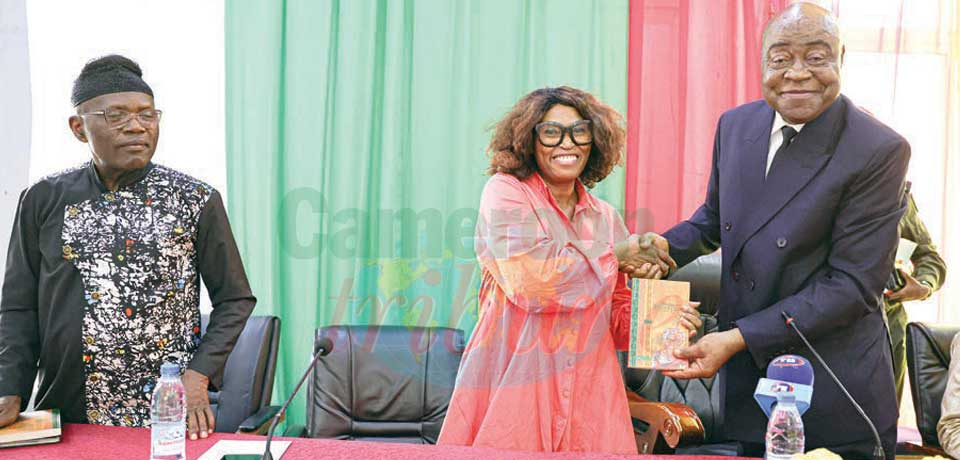
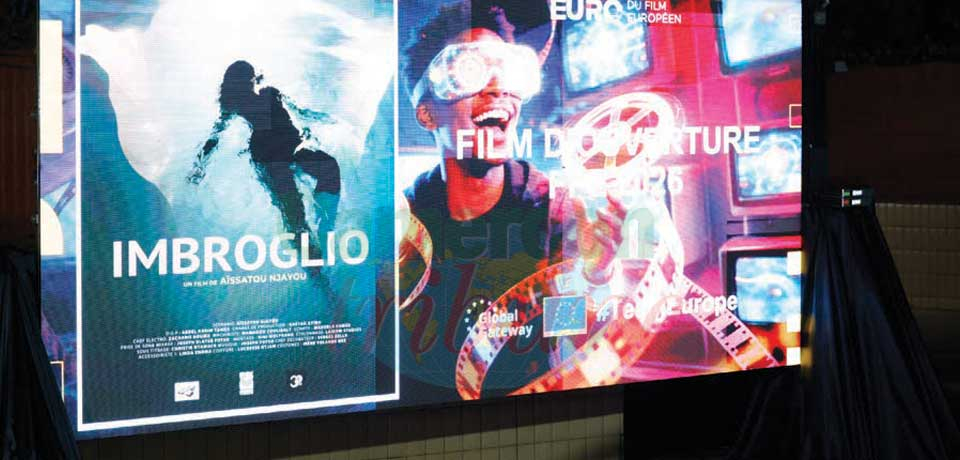
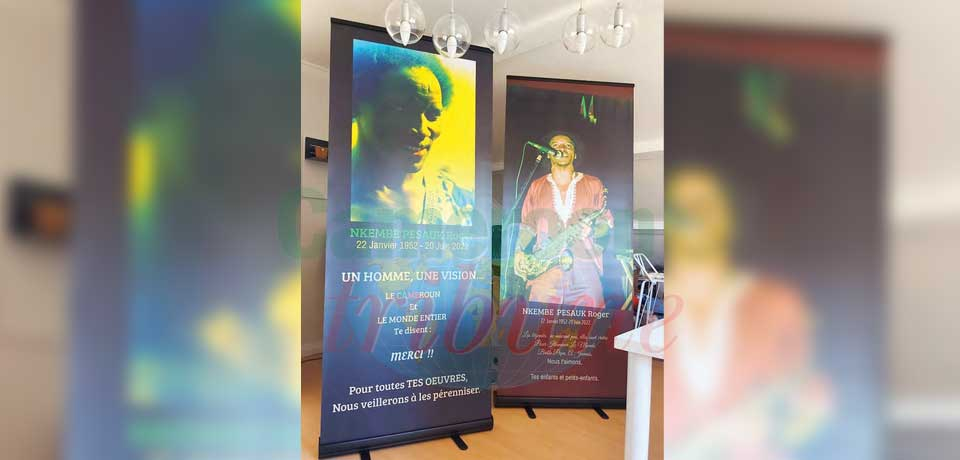
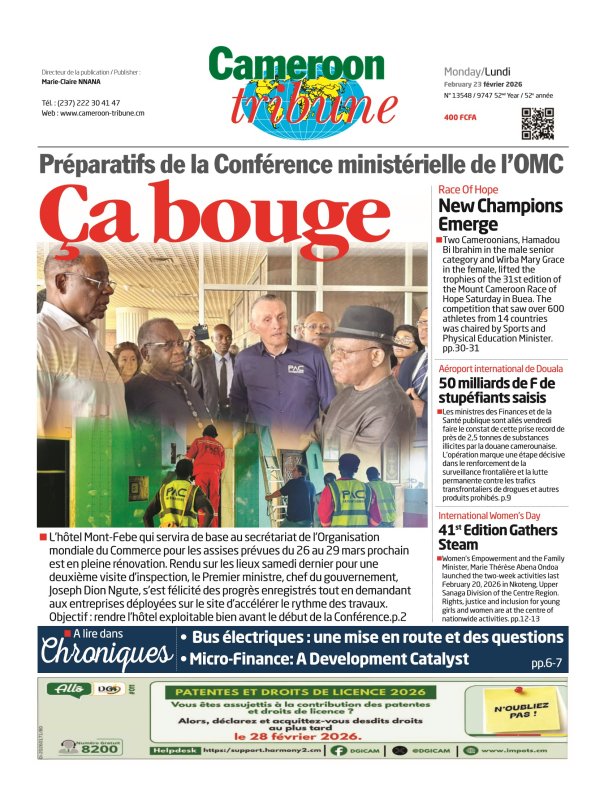




Commentaires